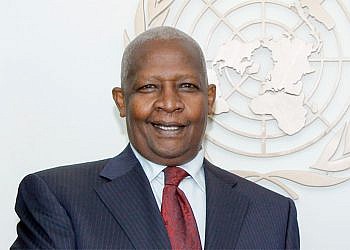Advocates in the Water, Sanitation and Hygiene (WASH) sector have asked government and civil society organisations to design programmes that empower women-led enterprises to engage in public procurement.
Speaking during a policy dialogue meeting at Eureka Place in Ntinda , WASH advocates called for the need for a robust support mechanism to enable them compete effectively in public tenders.
John Mutebe, the programs manager at Water and Sanitation Entrepreneurs Association Uganda (WASEU), said to take stock of the available opportunities, women-led need transparent, accountable systems and training programs.
He noted that although the Public Procurement and Disposal of Public Assets Act allocates 15% of the annual procurement budget to women-led enterprises, only 1% is taken, with data on the share of WASH procurement further negligible and absent.
Mutebe attributed this to various factors such as lack of skills, mentorship to build capacity, access to financial services, feedback on unsuccessful bids as well as cumbersome processes that discourage women from participating.
“Investing in women-owned businesses and integrating them into public supply chains is ‘smart economics’ and good for business. If we can increase women’s participation from 1% to just 5% in the next two years, there will be a significant ripple effect on the wellbeing of communities and the entire WASH ecosystem,” he said.
Baluka Mariam, a senior officer – Procurement Capacity Building at Public Procurement & Disposal of Public Assets Authority (PPDA), noted that although the legal framework provides opportunities for women and youth; women-led enterprises lack information, knowledge and skills to enjoy them.
Such opportunities included non-payment of bid participation fees as well as bid securing declaration instead of bid security.
During the meeting, participants also discussed inclusive fiscal policies to minimize the detrimental impact of high taxes on sanitary products, on the wellbeing of vulnerable women and girls.
Yunia Musaazi, the Executive Director of Uganda Water and Sanitation Network (UWASNET) said the high costs of menstrual hygiene products make these essential items inaccessible for many, hence calling for deliberate, innovate and streamlined action.
This comes at the backdrop of efforts such as a 2023 campaign to remove VAT and import duties on sanitary towels, as well as investment in reusable menstrual products.
“Whereas efforts towards improving menstrual health for vulnerable girls, have included making their own products; the raw materials are still expensive. Tax reductions and exemptions on them are needed to enable the private sector to deliver low cost products,” said George Gift Aribo, the Executive Director of Viva con Agua Uganda.
Lamwo Woman MP, Acora Nancy Odonga who represented the chairman of Uganda WASH Parliamentary Forum, pledged legislative support for efforts towards low cost sanitary products.
“Having subsidies to lower the costs is a pertinent cause for which we as women members shall mobilize support, when it comes to parliament,” said Acora.
A Comprehensive Policy Brief, will be developed from the dialogue and presented to parliament and various stakeholders across platforms.










































